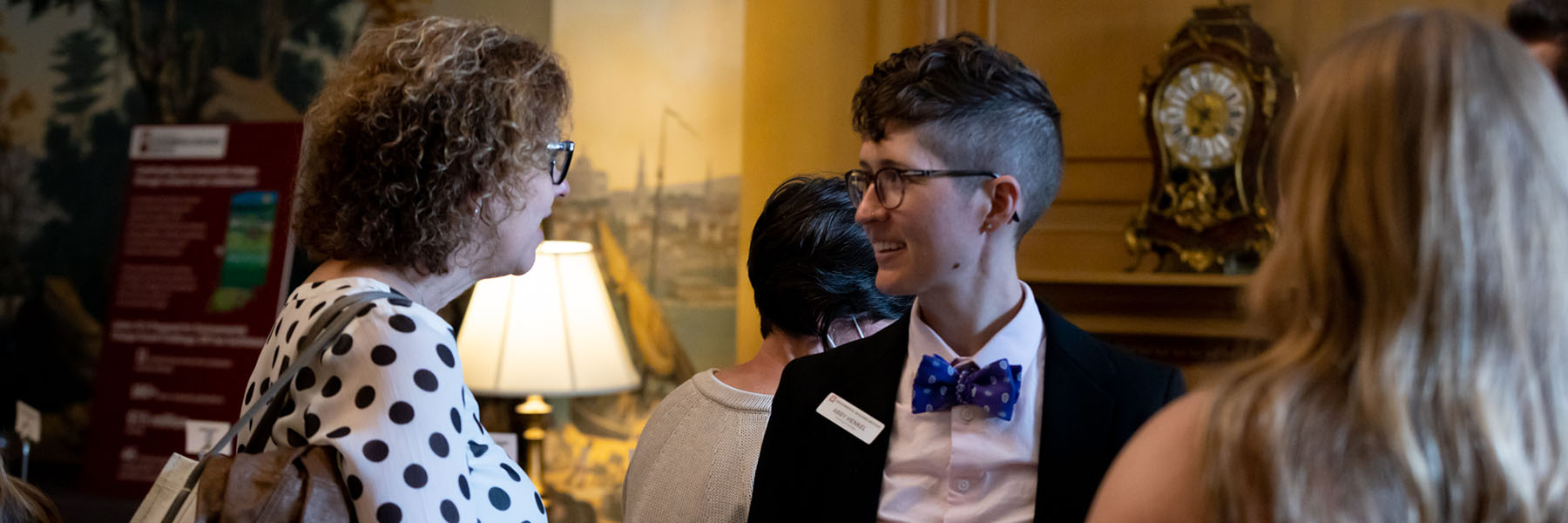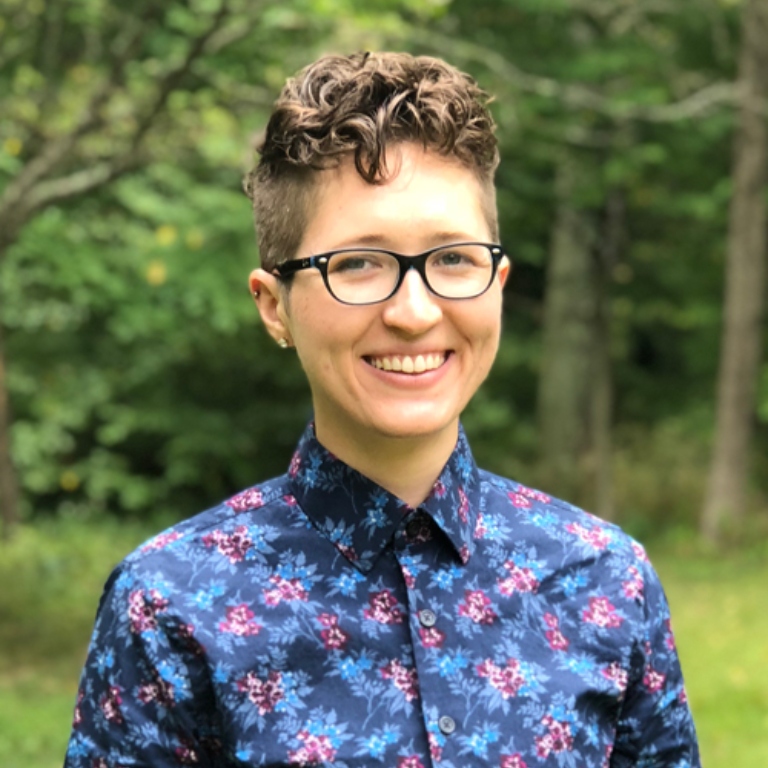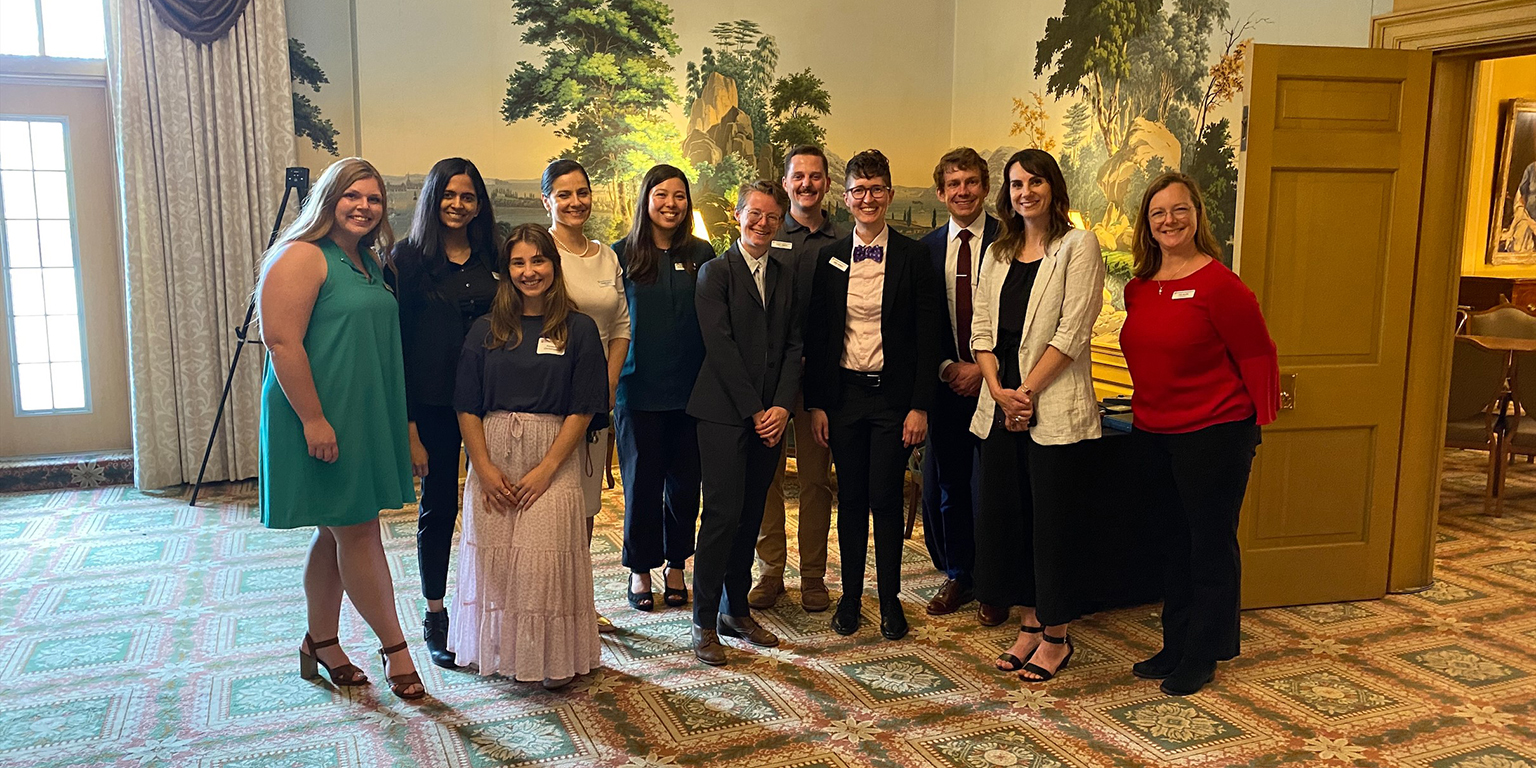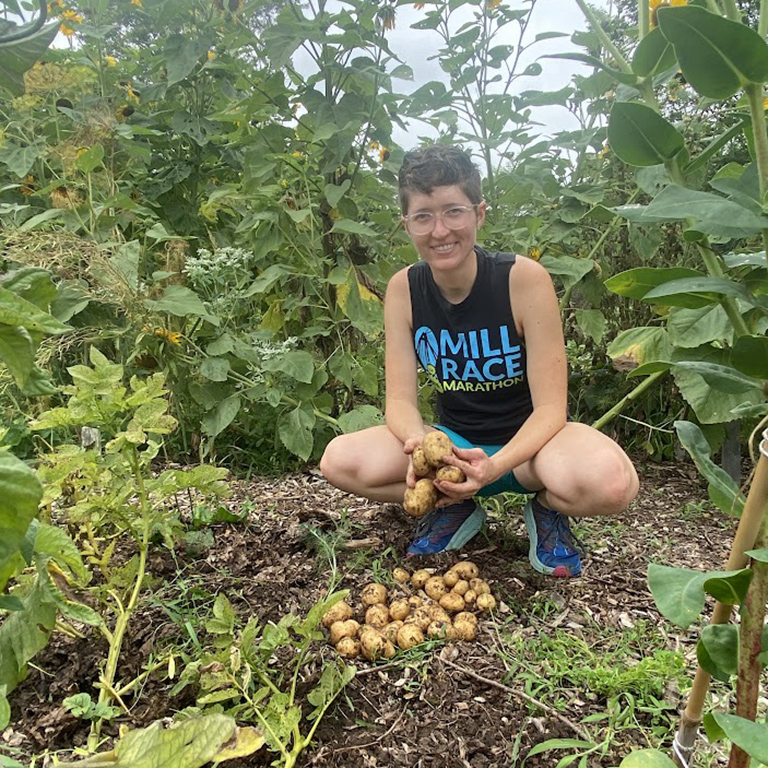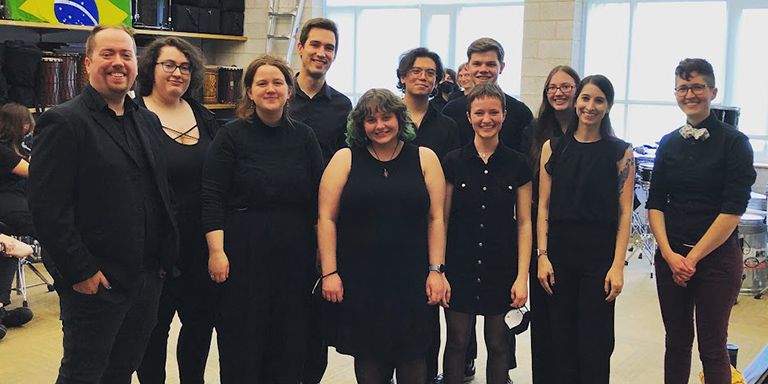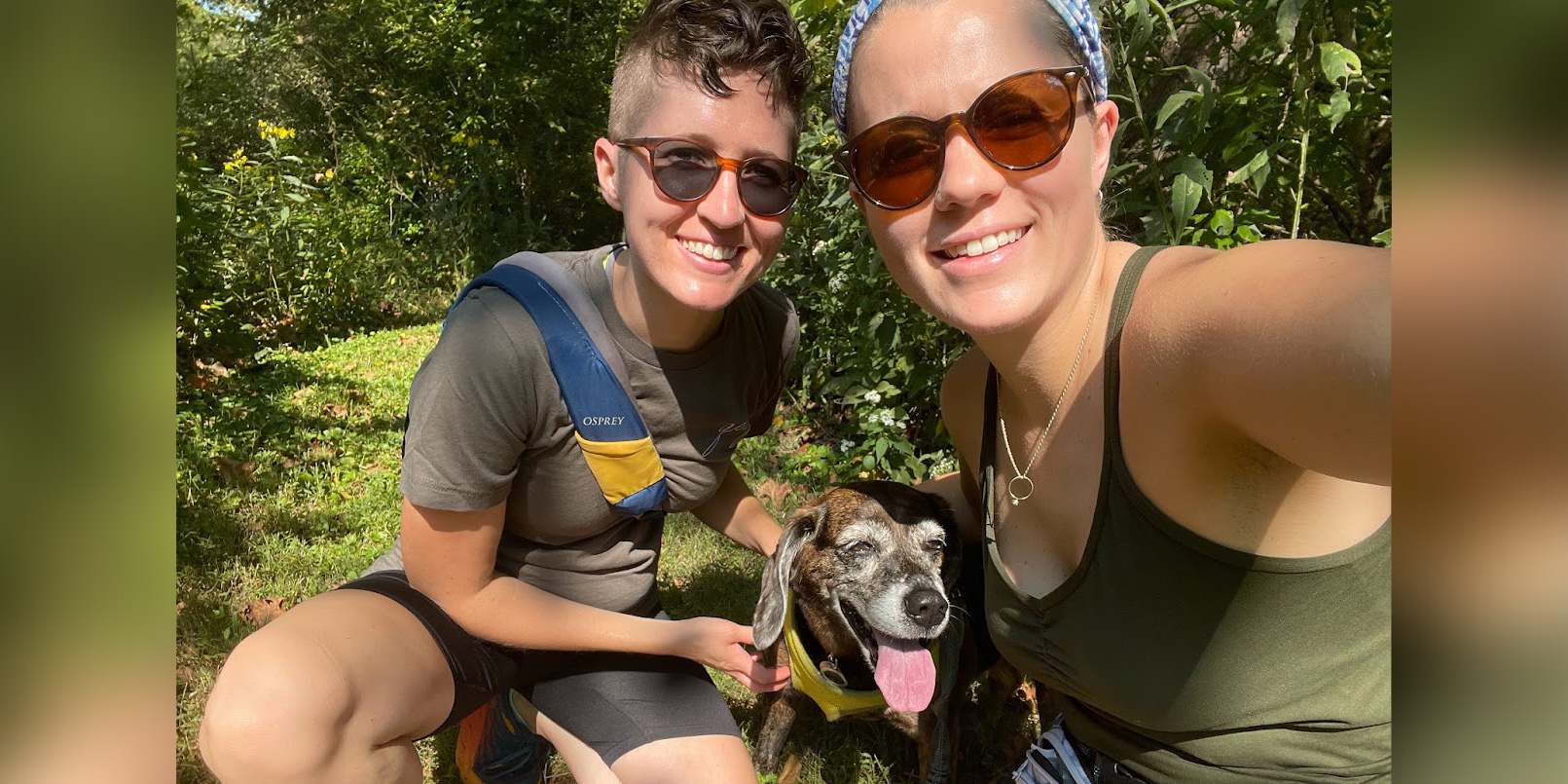Before joining the IU Environmental Resilience Institute team in late 2020, Henkel directed communications for the Sycamore Land Trust. At ERI, she cultivates relationships with donors, collaborates across campus, and manages grants—always taking opportunities to elevate environmental justice and diversity, equity, and inclusion. She also cultivates a few plots of land, serves as president of the WFIU Community Advisory Board, and sings with the Bloomington Chamber Singers and Voces Novae chamber choir.
Q: What drew you to work with the Environmental Resilience Institute?
A: First and foremost, it was ERI’s mission. I had a great job at Sycamore Land Trust at the time and felt well-connected to other environmentalists around Bloomington and Indiana. When Ellen Ketterson and others launched ERI, I stayed tuned in to what they were doing because climate change has always been the primary reason that I’m an environmentalist. When a friend told me about this opening, it felt like a good time to stretch myself into a new role with new challenges and to dive headlong into climate action. I hadn’t been considering working for IU—but now that I’m here, I can see why so many people value working here. I feel so lucky to be on a team composed of incredibly intelligent, hardworking, and kind people. Being part of the IU and IU Foundation ecosystems provides even more support for success.
Q: What’s one thing that people might not guess about development work for an environmental organization?
A: Most people who aren’t in development think my job is all about “asking people for money.” But that is so far from reality. Working in development in general is truly about building relationships and learning about the people who might want to make a huge impact by contributing to this cause. Every day I’m immersed in a few key areas: the projects my colleagues are working on and that need funding, climate news from around Indiana and globally, and potential funders and donors. Because I’m as panicked about the climate crisis as those around me, I know how much our donors at every level long for a way to contribute meaningfully to climate action, and I feel very honored that I get to help facilitate that. Someone who doesn’t wholeheartedly believe in the work and mission of ERI would not do well in this job, and I think that’s true of any fundraising job.
Q: What sorts of environmentally friendly gardening practices do you use?
A: Jess and I bought our little bungalow in 2019, the yard was entirely grass lawn. Given the insect and bird biodiversity crisis we’re living in, that felt untenable for us. Plus, we just love yard projects. We’ve now converted about three-fourths of the property to gardens, including seven raised veggie beds and just a ton of plantings and beds for native flowers and forbs [an herbaceous, non-grass like plant], plus non-native pollinator attractors like zinnias. We were lucky to get a City of Bloomington stormwater grant in 2020 that allowed us to put in a dry creek bed, rain garden, and French drain. Those features help redirect floodwaters from our basement and those of our neighbors, absorb and filter stormwater, and provide habitat for many critters, great and small. Composting allows us to cut down on the waste we send to landfills and produces a delightfully nutrient-rich addition to our veggie beds. And I wouldn’t be true to myself if I didn’t mention my obsession with saving seeds, which might not have a huge impact on the environment, but sure is soothing to a busy soul.
Q: Not to ask the impossible question, but what advice do you have for people who want to do something beneficial for the earth but aren’t sure where to start?
A: It’s only impossible because there are so many places for folks to start! Here’s a good place to start: get yourself educated on the top environmental issues of our time. There are too many to list, but one big one is what governments at every level can do about the climate crisis and environmental justice. Don’t let yourself get bogged down in guilty feelings about your personal carbon footprint, because we all start where we can. I’m not a scientist or policy wonk, so I found a way to contribute to climate action with the skills I had and wanted to develop.
Everyone can make a big impact by:
- Voting.
- Donating—even just a few bucks if that’s all you can do!
- Talking to people about what you learn and listening to their thoughts. Don’t be afraid to bring up environmental topics because chances are (and ERI’s studies have found) others are thinking about it too. You might be surprised who’s thinking about it, so don’t jump to conclusions about someone else’s beliefs simply based on stereotypes.
Q: What’s your favorite part of composing music, and where can people hear your work?
A: Oh gosh. Thank you for asking! In a word, composing choral music is thrilling. I still can’t wrap my mind around the fact that the music I create wouldn’t ever have existed without me. The biggest thrill is hearing others sing something I wrote, because I feel I’m connecting with the performers and audience in a very special way. I love singing so much, but I’ve been so pleased to get back into composing these past couple years because it allows me to tap into a creative part of my brain that was apparently just waiting to be awoken. Folks can hear recordings of my completed compositions at www.abbyhenkel.com, and I’m very pleased to say that the Bloomington Chamber Singers will be performing “Sorrow is Not My Name,” using text from a poem by Ross Gay, at a concert on Nov. 12 at St. Mark’s United Methodist Church in Bloomington. And there are a few new compositions being finalized that will be performed in the coming months … stay tuned (pun definitely intended)!


